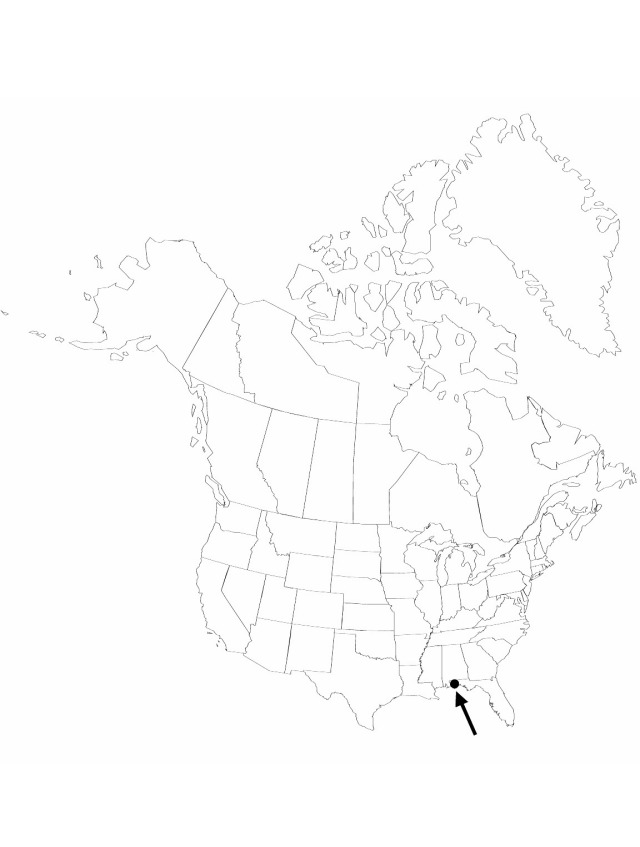Potamogeton floridanus
Flora of the Southeastern United States 37, 1326. 1903.
Rhizomes present. Cauline stems terete, without spots, ca. 50 cm. Turions unknown. Leaves submersed and floating, ± spirally arranged. Submersed leaves sessile, lax; stipules persistent, inconspicuous, convolute, free from blade, whitish, not ligulate, 2.5–4 cm, delicately fibrous, eventually shredding, apex acute; blade dark green to olive-green, narrowly linear, not arcuate, 15–20 cm × 0.7 mm, base attenuate, not clasping, not lobed, margins entire, not crispate, apex not hoodlike, acute, lacunae absent; veins 1. Floating leaves: petioles continuous in color to apex, 4–6.5 cm; blade adaxially dark brown, elliptic, 4.5–6.6 cm × 7–12 mm; base acute, apex acute; veins 7–11. Inflorescences unknown. Fruits unknown.
Phenology: Flowering and fruiting unknown.
Habitat: Shallow waters of flowing streams
Elevation: 0–10 m
Discussion
Potamogeton floridanus is an extremely localized species of the panhandle of Florida. No one has treated the species recently (E. C. Ogden 1943; R. R. Haynes 1978). Four populations of the taxon were reported from Santa Rosa County, Florida (G. S. Wilhelm and R. H. Mohlenbrock 1986). Those populations clearly match the protologue and the original collections. One population has recently been found fertile (J. R. Burckhalter, pers. comm.), but we have not examined the specimens. Because the taxon persists and has a vegetative morphology unlike any other pondweed, we believe it must be recognized. Until a better understanding of the taxon is developed, we prefer to recognize it at the specific level.
Of conservation concern.
